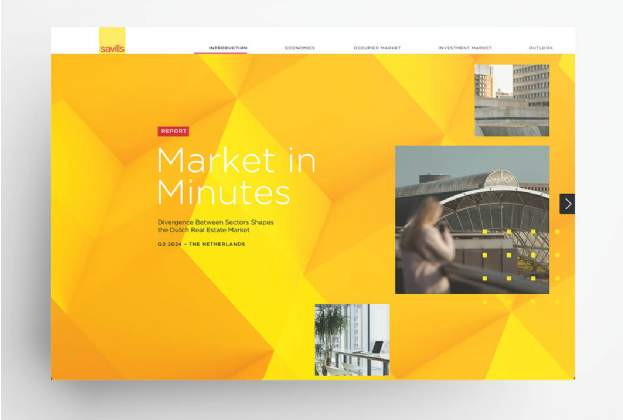NO STONE UNTURNED: 'MORE TRANSPARENCY IS NEEDED FOR BETTER VALUATION IN THE FLEXIBLE OFFICE MARKET'
The office market is changing rapidly, and one of those changes is the rise of flexible offices in the Netherlands. Robert Sparreboom, Head of Customer Excellence at office investor NSI, thinks that 'office as a service' will become the new normal. However, he believes that investors still overestimate the risk of flexible offices.
It is a difficult question: how much is such a flexible office worth? Flexible is often seen as uncertain and therefore too risky. According to Sparreboom, more transparency is needed to determine its value. ‘We need a benchmark for flex offices. Then we can compare. I think that's the responsibility of valuers and operators, it needs to be discussed more. Currently, everyone is still keeping their cards close to their chest.”
With its HNK concept (The New Office), NSI is one of the providers of flexible office space. “We are not only the owner, but also the operator of the building,” says Sparreboom. "This gives us complete transparency about the performance of our flex space."
According to Sparreboom, flexible does not necessarily mean more uncertainty. The space can be leased for the short term, but also for the long term; from three months to ten years; from twenty square meters to fifty thousand square meters. “Retention is high, yet, in my opinion, we are being ‘punished’ during appraisals.”
Sustainability
Not only is there much discussion about valuing flexible space, the value of sustainability is also a hot topic. The sustainable nature of flexible office space is still an underexposed subject, says Sparreboom. "Flexible offices already have an advantage when it comes to sustainability. While everything has to be renovated in a classic office building, a flexible office space is easy to adapt to a new tenant. In the former, every tenant wants things to be different, so everything is rebuilt over and over again.'
“I have seen it so often that new tenants completely redecorate an office. New walls, new furniture. And then after a year and a half the business has grown and they don't need it anymore, so everything is taken out again. Totally unnecessary. If you give the right tools to a company to create its own branding, a flex office can help. ”
Flex is a magnet
The function of the flexible office is changing. A few years ago, the flexible operator was still there to fill the last spaces. Now it is often the first tenant in an office building, to attract others and use shared spaces. “It is a magnet,’ says Sparreboom, “the services we offer are a motor for the building to attract other tenants. ”
.jpg)
.jpg)
.jpg)
.jpg)
.jpg)
.jpg)
.jpg)

.jpg)
.jpg)
.jpg)